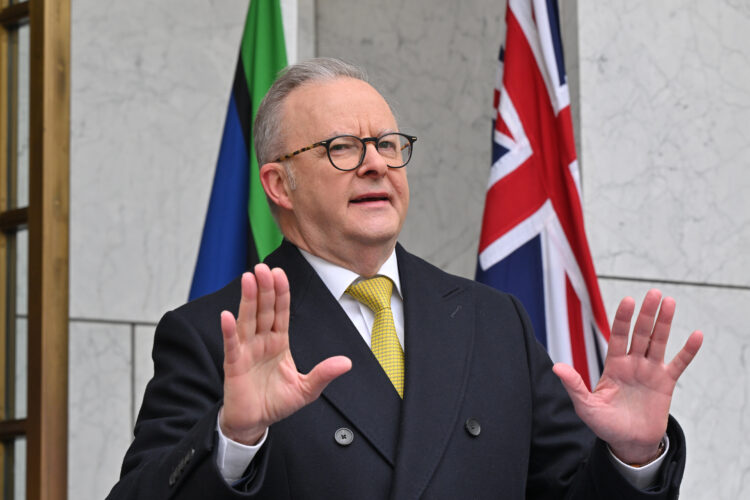On Trump’s tariffs and the threat of more for Australia, Jim Chalmers says:
We haven’t heard different from the 10% baseline that’s been levied on Australia.
Obviously, we continue to engage with the Americans on this. It’s one of the main issued playing out in the global economy. It’s a major source of uncertainty in the economy whether it’s what’s been said overnight about India, whether it’s the back and forth between the US and China, or the tariffs levied directly on Australia.
We have got the baseline rate as far as we are aware and as we understand it which is 10%.
)That’s diplomatic speak for – have you see how the US keep moving the goal posts with the other countries he is ‘negotiating’ with? Do you see how it means nothing?)
Q: Does the government expect that to move?
Chalmers:
Well, I think it would be a brave person to assume that there won’t be – whether it’s with other countries or – there will always be more announcements about this. These tariff announcements are a moving feast. But our expectation is we get the baseline. We think that the best outcome is zero because these tariffs are an act of economic self-harm. We see inflation is going up in the US. Earlier in the year they had slowing growth, interest rates on hold again in the US overnight. They have got higher interest rates than we do in Australia. So we think these tariffs are bad for the American economy, certainly bad for the global economy. We’re better placed and better prepared than most countries to deal with that but we won’t be immune. We’ll continue to engage with the Americans on it.
